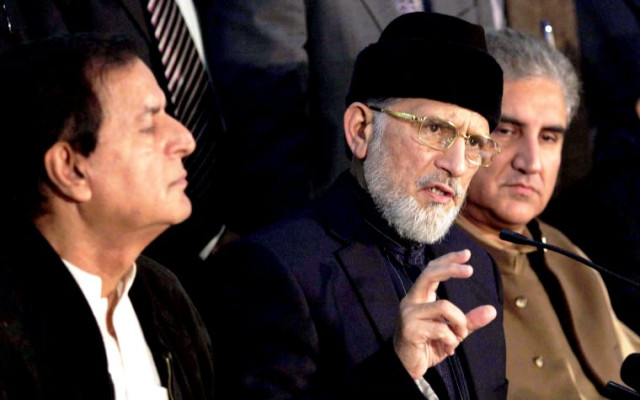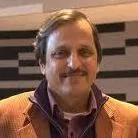He scored yet another point when his petition against the Election Commission of Pakistan (ECP) was admitted by the Supreme Court. It fixed Monday, February 11 as the date for the hearing when Qadri and Chief Election Commissioner Justice (retd) Fakhruddin G. Ebrahim will come face to face for the first time. What if the Canadian-Pakistan national wins the legal battle and the ECP is dissolved?
Ever since his surprise entry into politics after eight years, Qadri has been in the spotlight but not without the cloud of controversy hovering nearby.
After his unprecedented dharna, he has now announced rallies from next week, interestingly, all in Punjab. This could worry the Pakistan Muslim League-N while President Asif Ali Zardari and the Pakistan Peoples Party would certainly not mind anyone trying to dent Nawaz in the big province.
Is Qadri on a mission to make Nawaz Sharif uncomfortable given the PML-N chief’s tough stance on the Establishment?
On a number of occasions Nawaz has said that when he comes to power he will appoint a commission on Kargil and he has taken a strong position on Abbottabad. Indeed, whenever he has come to power Nawaz has always had problems with the army chief.
Additionally, Qadri has harnessed backing from Pakistan Tehreek-e-Insaf and PML-Q, both allies of former dictator Pervez Musharraf, who is already on Qadri’s side. Thus an undeclared understanding has developed between the two, if not three, against the PML-N.
Qadri’s politics is growing more and more suspect, but then Pakistani politics tends to turn murky as elections roll around. One reason why Qadri’s motives are not clear is simply that he will not be even part of the elections as a candidate.
He has declared that his Minhajul Quran will not contest the polls.
He has quit as president of his party, the Pakistan Awami Tehreek.
Why then is he concerned about the elections and electoral reform when he does not even want to surrender his Canadian nationality and is likely to return?
Or will he change his mind at the last minute, if all goes according to plan and his demands are accepted?
The demands which could jeopardize the election process include the extension from a week to 30 days in the time to scrutinize nomination papers, the dissolution of the ECP, delimitation of Karachi constituencies. But the law ministry has not shown any interest. The government has already made it clear that the ECP cannot be dissolved.
Fakhruddin G Ebrahim’s warning has said it all:
“Please, don’t do this. If we go, perhaps everyone will go.”
The time surrounding elections is usually overshadowed by apprehensions of attempts made by “not so hidden hands” to derail democracy. One such attempt was made in 1977, when former prime minister Zulfikar Bhutto announced elections, a year before his full term ended. The opposition alliance accused him of rigging and launched an agitation. Bhutto agreed to fresh polls and as they reached the agreement on July 4, 1977, Martial Law was imposed the next day.
These hidden hands have prevented many elected civilian governments from even completing their five-year terms.
The government that was formed from the 1988 elections lasted 18 months, from the 1990 elections, 22 months, and in 1993 the government formed by Nawaz was forced to resign. In 1996 Murtaza Bhutto’s murder led to the dismissal of the PPP government and in 1999 a counter-coup by Musharraf again saw the exit of the Nawaz government.
This time, the democrats want to see elections on time and be a witness to the first-ever transfer of power from one civilian government to another.



COMMENTS
Comments are moderated and generally will be posted if they are on-topic and not abusive.
For more information, please see our Comments FAQ